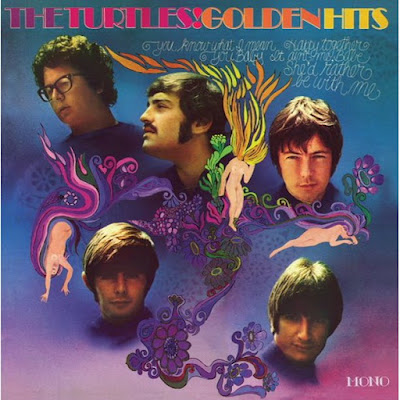As a teenager in the 1960s, I had little interest in Frank Sinatra. He was a singer from another time who was still around, doing the same thing he'd always done. He was a square from my father's generation. It didn't help much that his voice was beginning to change in a bad way, or that he tried in vain to seem hip by covering pop tunes of the day. I was listening to Beatles, Stones, and the whole raft of British Invasion groups, Motown and more gritty Southern soul, and plenty of American pop music from surf music to folk groups.
Later, as I got a bit older and began exploring jazz from the 1950s, I also began a reevaluation of some of the great singers of the 1950s, including Tony Bennett, Peggy Lee, Nat "King" Cole, and Frank Sinatra. And I began to realize that Sinatra was a singular vocal talent, a singer of enormous soul and depth, a man who could inhabit a lyric like no one else.
Of course the Sinatra catalog is a daunting thing of epic proportion, and he worked for several record labels that until more recently meant that a through overview was a challenge for the consumer. I'm not an expert on his work, and this is not the definitive buying guide, but I own a few CDs and a bunch of LPs that I mostly bought used, and some of them are really great.
Sinatra first recorded for Columbia as the singer for the Harry James Orchestra in 1939-40, and for RCA with the Tommy Dorsey Orchestra from 1940-42. He then began recording singles (78 rpm) under his own name from 1943-52 for Columbia. I have the 2 CD set Portrait Of Sinatra- Columbia Classics (1997) that covers this period, and it is some great stuff. His voice is strong and young, and he is already the nuanced singer that his work in the 50s and 60s reveals in detail.
From 1953-1962 Sinatra recorded for Capitol Records, releasing a bevy of singles and a ton (23 actually) of LPs. This period, at least in my view, is the greatest era of Sinatra's career. His voice is still in great condition, albeit slightly lower in register than in the forties, and the material, arrangements, and recording technology are all excellent. And it is in this time that Sinatra records much of his most memorable material. One of the first "concept" albums, 1955's In The Wee Small Hours is well worth seeking out as either used LP or newly reissued LP or CD. It is themed around loneliness and heartache, and Sinatra's way with a ballad is as good as any singer, anytime. A single CD that might be almost all the Sinatra you need, Classic Sinatra His Greatest Performances 1953-1960 is worth having. It is the essence of Sinatra's greatness distilled down to twenty tracks, and every single one of them is superb.
 | |||||||
Sinatra in the sixties is a mixed bag. Some of his most famous recordings happened in the sixties, and even if they weren't as great as his fifties work, there are still some fine performances to be had. When Sinatra went to Reprise, a label he owned, he produced some of his less well-reviewed records in the early sixties. But by 1965's September Of My Years, he was making a rebound. Strangers In The Night 1966 continued the hot streak. In the midst of all this came Moonlight Sinatra 1966. Released in March, by May, Sinatra's own Strangers In The Night made Moonlight Sinatra invisible. It may be the great overlooked Sinatra record.
The late sixties and seventies were not kind to Frank Sinatra. His voice changed, and not really for the better. It's wrong to say he wasn't still a great singer, but his instrument was not what it had been. He was not to be the artist that ages gracefully in his voice, and he knew that mostly by the seventies, and his output waned significantly.
You might want to explore one of the single CD Reprise era collections, like Sinatra Reprise: The Very Good Years 1991 or Nothing But The Best 2014. But those fifties performances on Classic Sinatra will not be bettered, I assure you.





